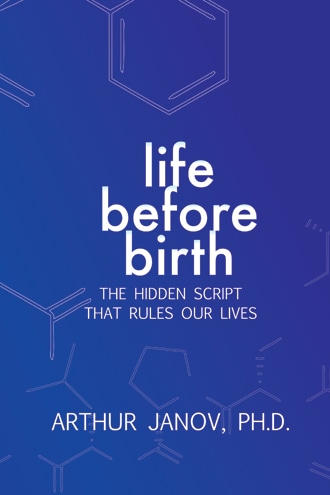on life before birth, the primal scream doc, and what the womb experience means for us adults
February 7, 2012
 Do you know anyone who feels anxiety, or depression, is resistant to last minute changes in plans, or doesn’t seem to bond well with other people? It could be that their time in the womb created a biological blueprint that caused them to be that way.
At least, that’s the argument, as I understand it, that Dr. Arthur Janov outlines in his new book Life Before Birth. Janov is the well-known psychologist and author of 11 books including the bestseller Primal Scream. Yup, this is the guy who advises on the importance of letting out a rip-roaring, gut-wrenching scream in order to clear certain health issues. Needless to say, he’s got a bit of a reputation. But when the book arrived for my review I dropped my own judgements of The Scream and opened it up with a consciously clear mind. Because study after study is proving that we are deeply effected by our time in the womb and the birth process–and Dr. Janov is positing that simply re-living or re-feeling traumatic experiences from this time can free us from their negative impact.
Do you know anyone who feels anxiety, or depression, is resistant to last minute changes in plans, or doesn’t seem to bond well with other people? It could be that their time in the womb created a biological blueprint that caused them to be that way.
At least, that’s the argument, as I understand it, that Dr. Arthur Janov outlines in his new book Life Before Birth. Janov is the well-known psychologist and author of 11 books including the bestseller Primal Scream. Yup, this is the guy who advises on the importance of letting out a rip-roaring, gut-wrenching scream in order to clear certain health issues. Needless to say, he’s got a bit of a reputation. But when the book arrived for my review I dropped my own judgements of The Scream and opened it up with a consciously clear mind. Because study after study is proving that we are deeply effected by our time in the womb and the birth process–and Dr. Janov is positing that simply re-living or re-feeling traumatic experiences from this time can free us from their negative impact.